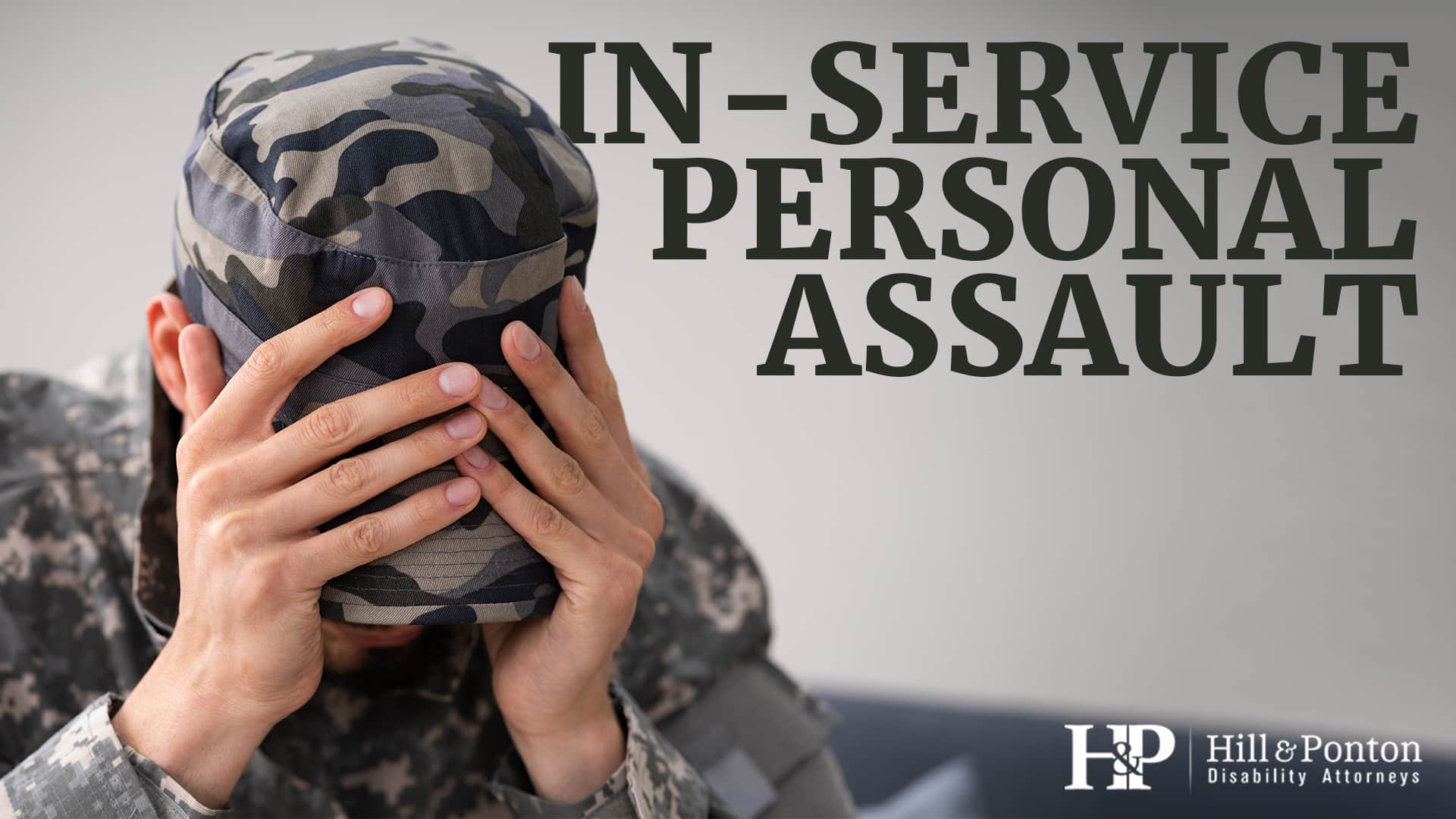Military Sexual Trauma (MST) and its psychological aftermath, particularly Post-Traumatic Stress Disorder (PTSD), present a significant challenge for many veterans.
The Department of Veterans Affairs (VA) acknowledges the profound impact of MST and offers disability benefits for conditions like PTSD that stem from such traumatic experiences. This article will guide you through the process of getting a PTSD (MST) VA rating, helping you understand how to secure the benefits MST survivors rightfully deserve.
Who Can Get MST-related VA Disability Benefits?
MST encompasses any sexual harassment or assault experienced during military service, profoundly affecting a veteran’s mental and physical health. PTSD is a mental health condition triggered by witnessing or experiencing a traumatic event, including military sexual trauma.
To be assigned a PTSD rating for MST, there are generally three things that you must be able to prove:
- You had an incident of military trauma while on active duty
- You are currently diagnosed with a mental or physical disability, and
- Your disabilities were caused by, or were worsened by, the military sexual trauma you suffered in service
Some Symptoms of PTSD
- Intrusive memories and flashbacks
- Severe anxiety and hypervigilance
- Emotional numbness and avoidance of trauma reminders
- Difficulty maintaining close relationships
What Is the VA Rating an MST Survivor Can Receive?
VA rates PTSD, including that stemming from MST, under a schedule that considers the severity of social and occupational impairment. VA ratings for PTSD from MST range from 0 to 100%, with higher percentages indicating more severe disability.
- 100%: Total social and occupational impairment, with symptoms like persistent danger of hurting self or others, or gross impairment in thought processes.
- 70%: Deficiencies in most areas, such as work and family relationships, due to symptoms like suicidal ideation, near-continuous depression, or unprovoked irritability with periods of violence.
- 50% to 30%: These ratings reflect varying degrees of occupational and social impairment due to symptoms like panic attacks, difficulty in understanding complex commands, or depression.
- 10%: Mild or transient symptoms that decrease work efficiency only during periods of significant stress.
- 0%: A diagnosis is present, but symptoms are not severe enough to impair social and occupational functioning.
Obtaining a VA Disability Rating for an MST Claim
Filing with the VA requires careful preparation and thorough documentation of the Military Sexual Trauma. Follow these steps to ensure that your claim is processed efficiently and effectively.
- Complete VA Form 21-526: Start by accurately filling out the VA Form 21-526 for disability compensation. Ensure all sections are completed correctly; if a section doesn’t apply to you, mark it as ‘N/A’ to avoid leaving any part blank, which could delay processing.
- Secure a Diagnosis: Obtain a formal diagnosis of PTSD, anxiety, depression, or any other mental health condition from a healthcare provider. This is crucial as MST itself is not a diagnosis but can lead to these disabling conditions.
- Gather Evidence: Traditional evidence like service medical records might be lacking due to the nature of MST cases. Use alternative evidence by filling out VA Form 21-0781a to establish the occurrence of MST and its impact. Include any available records from military or civilian medical facilities, and personal accounts that document changes in your behavior or performance post-event.
- Nexus Letter: Acquire a Nexus Letter from a healthcare provider stating it is “more likely than not” that your diagnosed condition is linked to the MST experienced during service. This letter should clearly connect your mental health issues with your military service.
- Submit Your Claim: File as soon as possible to backdate potential compensation to the date of filing. You can submit additional evidence later as you gather it, but ensure you have your Nexus Letter and initial evidence ready when you file.
- Utilize MST Coordinators: Consider consulting an MST Coordinator through the VA, who can offer guidance specific to MST claims and assist in reviewing any past denials.
Gather as much evidence as you can to build a strong and well-developed MST claim, increasing your chances of receiving the VA rating and benefits you deserve.
A C&P Doctor on How the VA Rates MST
In the video below, Attorney Allison Reddick interviews Dr. Vonetes, psychologist and C&P examiner, about military sexual trauma and how it is evaluated by the VA.
If you were denied a VA disability rating for MST, please request a free evaluation here. Our VA-accredited attorneys are highly experienced in winning cases for veterans like you and may be able to help.
Free case evaluationThe Role of the MST C&P Exam in Getting a VA Rating
During the MST C&P exam, it’s important to be open and honest about your experiences and the impact they have had on your life. This includes discussing any mental health issues like PTSD, anxiety, or depression that have arisen as a result of the trauma.
The exam aims to assess the severity of your symptoms and their effect on your daily life, which directly influences the disability rating assigned by the VA.
VA ratings for MST-related claims can vary, but they are determined based on the degree of occupational and social impairment caused by the condition. These ratings are not just about acknowledging the trauma but also about recognizing the profound impact it can have on a veteran’s functionality and quality of life.
By accurately conveying the extent of your symptoms and their impact during your C&P exam, you help ensure that the VA properly evaluates your case, potentially leading to a disability rating that reflects the true extent of your impairment.
Seeking Help and Representation
Obtaining a VA rating for PTSD due to MST can be complex and emotionally taxing. Legal representation or assistance from a VA-accredited agent or PTSD lawyer can provide guidance through the process, ensuring all necessary documentation and evidence are correctly submitted. Additionally, many organizations offer support specifically for MST survivors, helping them through their recovery journey.
Did the VA Deny Your Disability Claim?
Let our team review your case today!
Get a Free Case Evaluation


